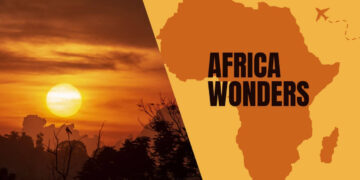At the height of independence for most African countries, Congolese music dominated the airwaves and graced the podiums of independence celebrations for most African countries. The Pan-African appeal of their music made Congolese bands like African Jazz, OK Jazz and Les Bantous de la Capitale traverse Africa between the late 1950s into the early 1990s. They benefited from state patronage which led to more listenership on the national radio airwaves as well as live performances that saw numbers attend and get entertained in a music genre that most people called Lingala. Unbeknownst to many, what they called lingala was actually the language but not a music genre which is called rhumba or rumba. To date, rhumba dominates the entertainment spots in most African countries, especially the East going towards the South and Lingala has spread in that same spirit with slightly over 50 million speakers spreading across the continent.
In a recent episode of Africa’s LSP Podcast on Tracing the History and Heritage of the DRC’s most popular Lingua Franca, Lingala, Dr. Micheal Meeuwis, an expert and professor in the Lingala language and African Social Linguistics at Ghent University, Belgium shares immense knowledge on tracing the roots of Lingala. The following points are derived from Dr. Meeuwis’ conversation on Africa’s LSP Podcast hosted by Nat King Taylor.
Lingala sits at the top ten list of Africa’s 2000 spoken languages.
Lingala was brought into the limelight in the beginning of the 20th century by missionaries in an attempt to change how the language was written to fit into the idea of a proper language. However this mission was dead on arrival because the native speakers found this ‘ alternative’ lingala to be difficult to comprehend and nothing closer to its original version. Beyond this, there are varieties of lingala spoken across the globe. The missionaries claimed the grammar and the lexicon used in the native lingala was insufficient . They wrote down the first language for the first time but it did not sound anything like the spoken lingala. This ‘mission lingala’ as it is commonly known can be found being taught in some universities abroad.
Lingala amongst non Congolese and beyond
It is interesting that even with the ‘mission lingala’ doing rounds across the continent, the original lingala has continued to grow even amongst non Congolese and in the diaspora. It is spoken in the Democratic Republic of Congo (DRC) as well as in Congo-Brazzaville. In the DRC it is spoken in the western and northern parts while in Congo-Brazzaville it is spoken by two-thirds of the country alongside Kituba. The language is also spoken in the Congolese diaspora in the global north, Belgium as well as Paris in France, Canada and the USA. It is important to note that the diaspora Congolese speak the original lingala and intentionally pass this from one generation to the next. Further to the south of Africa are Congolese migrants who have found a home in Johannesburg and Cape Coast, equally speaking the original lingala. Maintaining the original lingala has enabled not only the preservation of the language and its cultures but also spread of the language to even non Congolese people who find themselves in these Congolese communities.
The use of Lingala in Schools and on the internet
Unlike some other languages, Lingala has managed to escape the jaws of language spelling system as there are no uniform spelling rules commonly accepted for the grammatical structure of the language. Nonetheless, it is still written and used a lot on the internet on social media platforms. It is written just as it is spoken which allows for creativity in its writing. It is ironic that even though it is widely spoken by the Congolese, it is perceived as not good enough to be used in official platforms. In its place French is used exclusively as a language of instruction in schools and any official government documentations. This has however not panned out well especially for native speakers of lingala. There is a deliberate effort to promote the use of lingala in schools as a medium of instruction . Organizations like Mabiki who are at the forefront of this campaign have provided platforms for creative literature written exclusively in lingala. They have also founded a school in Kinshasa, Congo’s capital, where lingala is the medium of instruction for even mathematics, geography and other languages.
Conclusion
Lingala has thus continued to grow even with non native speakers through Congolese music which has had a great impact since long ago. The capital Kinshasa also plays a great role in the spread of Lingala as it is the hub of the continued use of Lingala and through its cultural influence to the Congolese as well. Other national languages spoken in Congo include Kiswahili, Tshilubà and Kikongo. Yet still they do not have as wide an impact at home and beyond like Lingala has done









